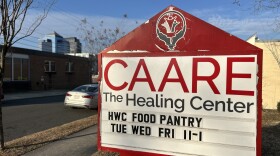A North Carolina prosecutor announced Monday that she won’t charge law enforcement officers who fatally shot three people in three separate incidents in January.
Durham County District Attorney Satana Deberry’s office announced that Deberry has concluded her review of investigations into the shootings and evidence doesn’t support criminal charges. She released letters to the three departments involved.
The cases include the fatal shooting of Stephanie Monique Wilson in Bahama on Jan. 4 by a Durham County sheriff’s deputy. The investigation found Wilson placed a false emergency call to 911 to induce law enforcement officers to respond to her home and pointed a shotgun at deputies several times, ignoring their orders to disarm, Deberry wrote. The evidence establishes that a reasonable officer would have believed he and others were in danger and under the circumstances, the force used wasn't excessive, she wrote.
The second case was the fatal shooting of Charles Piquet at a Circle K station on Jan. 12 by Durham police officers. A clerk called 911 and reported that a man who had cut his neck with a broken bottle was threatening her. An officer in the responding officers’ positions would have reasonably believed that Piquet’s actions were an imminent threat of deadly force, and the force officers used was not excessive under the circumstances, Deberry said. The letter notes that the clerk also claimed to be shot by officers.
The third case was the fatal shooting of Raishawn Jones by a Duke University officer at Duke University Hospital on Jan. 14. Jones was taken to the hospital after he was involved in a crash with a pedestrian and determined to be intoxicated, Deberry wrote. Jones’ restraints were removed so he could use the bathroom and while he was being evaluated for release, he tried to leave, but the officer guided Jones back to the exam room. When the officer moved to handcuff Jones, they began to struggle over the officer’s gun, and during the struggle, Jones managed to fire one shot, according to Deberry's letter. A second officer arrived and shot Jones, who later died.
Deberry states that a reasonable officer would have believed that the officer struggling with Jones was in danger and under the circumstances the force he used wasn't excessive. But she also notes that the presence of guns in the emergency room increased the level of risk and suggests that the hospital and police department consider a policy that requires guns to be stored securely before entering the emergency department.






